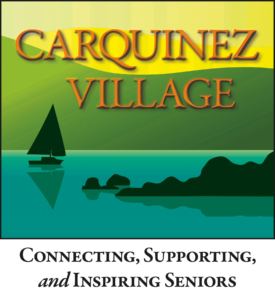Who are your heroes? Do you have any? If you were asked to name them, what would you say?
I have been in a couple of situations where I was asked to list my heroes. The people who popped into my mind were Martin Luther King, Jr., Rosa Parks, Bobby Kennedy, Gloria Steinem, Harriet Tubman, Ruth Bader Ginsburg, Nelson Mandela, Malala Yousafzai, the suffragettes, and more. These people, from my point of view, are courageous leaders who stepped forward to advance equality and fight for the rights of minorities. You may have a very different list. Mine reflects my value system and fits the definition of a hero, which is, “ . . . a person who is admired or idealized for courage, outstanding achievements, or noble qualities.”
I’ve been thinking of this recently because I realized that, since I moved to California eight years ago, I’ve added a new hero to my list. She is also someone who has given a voice to minorities, but she has a characteristic that those I mentioned above don’t have. Guess what it is. She’s old!
Now that I am almost 80, I’m increasingly appreciative of the qualities and accomplishments of others who are also in their final stage of life. They inspire me. My new hero is not as famous as the others I’ve mentioned, but she is on her way to becoming a local and national legend. Her name is Betty Reid Soskin. Do you know Betty, or know of her? She is a role model for all of us.
Betty Reid Soskin was born on Sept. 22, 1921, and, if you’re quick with numbers, you have already figured out that she’s 96. How many people do you know who are still working at this age? Betty is, and she shows no sign of stopping. At 96, she is the oldest park ranger in the United States National Park System. Imagine being a park ranger at this age. In fact, imagine starting a new career at age 85, which is when Betty was initially hired by the park service. But, age doesn’t seem to be a factor to Betty. She looks, acts, and sounds as if she’s 57! She is sharp as a tack and moves with a spring in her walk. No walker, no arthritis, no anything, it seems.
As a park ranger, Betty has been assigned to an urban park––the Rosie the Riveter/World War II Home Front National Historical Park in Richmond––which she helped to plan and design. She gives weekly tours and talks about women’s role in World War II, the evolution of Richmond, and her own story as an African American woman. She’s described as an “interpretative historian,” a well-deserved title for a woman whom I don’t believe ever set foot on a university campus except to receive an honorary degree. In fact, if I didn’t know better, I’d swear she has a Ph.D. in Sociology! Her understanding of social change is extraordinary.
I take every out-of-town guest to hear Betty. A natural storyteller, she is one of the best presenters I have ever heard. Over the recent years, she has become a local celebrity. You used to be able to arrive at the Park, walk in, and take a seat for one of Betty’s talks. But, no more. You need to arrive early and hope that you’ll manage to get a reservation.
I could go on and on detailing Betty’s resume, which includes being a song writer in the Civil Rights Movement, a founder of a record store that still exists in Berkeley, and a field representative for California State Assemblywomen Dion Aroner and Loni Hancock. But, Betty is a hero to me, not because of her job titles, but because of who and how she is.
First, Betty is an activist who uses education and reason as her tools. She is passionate, but always rational. When she moved to Walnut Creek in the 1950s and her children were the only African Americans in the school, the PTA (Parent/Teachers Association) hosted a minstrel fundraiser where everyone was encouraged to come in black face. Can you imagine how easy it would have been to explode in anger? But, not Betty. She educated everyone instead.
Second, she is positive and generous. I listen between the lines of her talks, and hear a person who, despite discrimination and hardship, has an open heart. Betty’s great-grandmother was a slave. She has plenty of reason to be less than charitable.
Third, Betty is tough. In 2015, she was honored by President Obama who presented her with a commemorative coin. One year later, during a violent home invasion and beating, it was stolen along with some other jewelry. Betty managed to lock herself in her bathroom during the robbery, get help, and eventually go through a healing process and return to work. How many people in their mid-90s do you think could be this resilient?
I have barely begun to capture Betty’s qualities and legacy of service. I hope that you get the picture. Many Carquinez Village members visited the Rosie the Riveter Museum when we hosted an educational field trip. If you weren’t among them, I encourage you to find some friends and head to Richmond. Here’s the website where you can learn when Betty Reid Soskin is speaking: https://www.nps.gov/rori/planyourvisit/calendar.htm. Don’t miss this amazing woman!







Leave a Reply